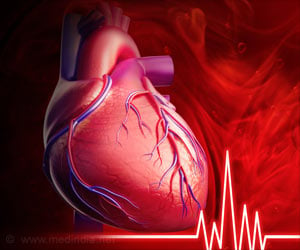Hydrogel found to prevent heart failure after a heart attack has been identified.

- Hydrogel that can prevent heart failure after a heart attack has been identified
- The hydrogel can support the heart cells that have been damaged.
- It prevents the development of heart tissue and enlargement of the heart.
Heart Failure after Heart Attack
More than 5 million Americans suffer from heart failure after a heart attack. One in 5 heart attacks is a silent heart attack where the individual is unaware about the occurrence, however, normally there is a searing pain as an indication of an attack.The heart failure that occurs after a heart attack can slowly lead to fatigue along with shortness of breath and eventually lead to death if left untreated.
Dr. Jason A. Burdick who is the lead author of the study says "Heart failure is a huge problem, and few therapies are available for these patients.”
Injecting Cells as Treatment
A heart attack warrants treatment and the treatment options that are currently available include a change in the lifestyle of the individual, medication or in extreme cases, a heart transplant. While a donor for a heart transplant is hard to find, the other options too offer limited support.
The cells were injected embedded in these hydrogels into mice and the control group included mice that were injected with hydrogels without the cells. The study found that mice that were injected with blank hydrogels showed recovery even though there were no cells inside.
Work on Hydrogels
There are a couple of labs that have begun work on these hydrogels and their effectiveness in controlling heart failure after a heart attack. However the researchers from University of Penn have based their hydrogel on a sugar compound that is present naturally in the body, called hyaluronic acid.- To facilitate easy flow through the catheter the researchers include cyclodextrin and adamantane.
- Methacrylate and thiol group were included so that there would be additional cross-linking. This would make the gel stronger when compared with hydrogels currently being worked on at different labs.
Benefits of Using this Gel
- The gel developed by Burdick and colleagues has more cross-links when compared with other hydrogels being studied.
- The damaged heart area gets additional support from this gel
- Scar tissue formation is lowered
- There is control over the thinning of heart walls after an attack.
- The size of the organ is controlled by controlling enlargement of the heart that occurs after a heart attack.
- As the size of the heart is controlled, it prevents the leakage of blood via the mitral valve.
Tips to Prevent Heart Disease
- Choose a healthy diet plan
- Adequate physical activity
- Know your family history
- Tame your stress
- Watch your weight
- Don’t smoke
- Monitor blood pressure and cholesterol levels
- Heart Attack - (http://www.cdc.gov/heartdisease/heart_attack.htm)
- What Is a Heart Attack? - (http://www.nhlbi.nih.gov/health/health-topics/topics/heartattack)














